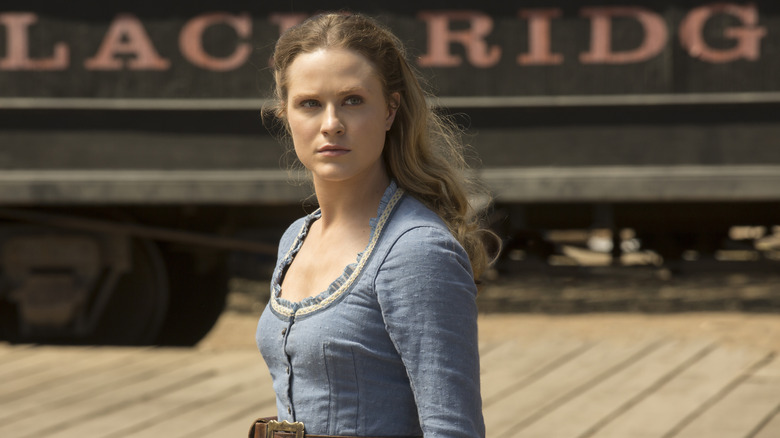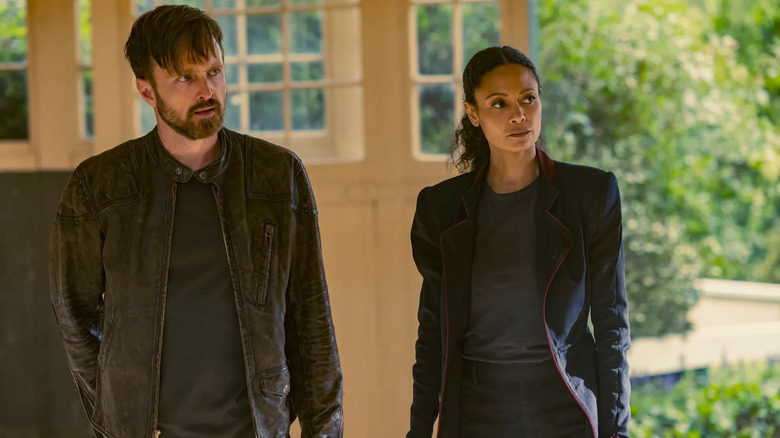The Real Reason HBO Canceled Westworld
There was a time where the best sci-fi shows on TV weren’t on Apple TV+, but on HBO, and a big part of this was due to “Westworld.” Based on the 1973 film written and directed by Michael Crichton about a futuristic park filled with robots that eventually malfunction and start murdering the guests, the TV show would constantly throw out new sci-fi concepts, big-brain ideas, and wild plot twists that got fans talking — even if it did go off the rails every so often.
More than anything, “Westworld” was a gorgeous-looking series where the producers had clearly spared no expense (unlike the characters from that other famous Michael Crichton adaptation about a sci-fi theme park), with elaborate sets and exquisite production design. It was not an easy show to love, to quote /Film’s own Danielle Ryan, but even in spite of the confusing timeline shenanigans and excess of plot twists, the vibes were always good and the visuals stunning. And that’s without even mentioning Ramin Djawadi’s incredible score and an ensemble cast that included Anthony Hopkins, Ed Harris, Jeffrey Wright, Thandiwe Newton, Evan Rachel Wood, James Marsden, and Aaron Paul.
Regardless, that didn’t stop the powers that be from shutting down the park and canceling the show back in November 2022. As for the reason, it was simple enough — money. The first season cost $100 million (which was already high back in 2016) and the budget escalated to at least $160 million by the time the final season rolled around. Executive producer J.J. Abrams even described the show’s production values to The Hollywood Reporter as “preposterous” prior to the season 1 premiere. According to THR, the budget, combined with the changing of settings every two seasons, meant “Westworld” certainly wasn’t a cheap show to make or market. As such, when its final two seasons earned diminishing ratings, it no longer made financial sense to keep the series going.
Westworld had a high cost of admission
Though “Westworld” only got four seasons, THR noted that creators/showrunners Jonathan Nolan and Lisa Joy (as well as HBO) had plotted a six-season overarching story for the show. However, by the time the show entered its fourth season, the TV landscape had changed dramatically. It no longer mattered that “Westworld” had accumulated over 50 Emmy nominations in its first three seasons; the series was no longer worth it to HBO in 2022, at a time when television and film budgets had become excessively high in general. Suddenly, cost-cutting was the top priority throughout Hollywood.
Shortly after the cancelation of the show, James Marsden shared his disappointment, acknowledging that “Westworld” was a costly endeavor and “big shows have to have big audiences” to warrant all that spending. “I just wish it was about more than financial success,” he added.
The sad reality is that shows like “Westworld” either don’t get made anymore or, if they are made, simply don’t reach as many seasons as its creatives would prefer. Even if your show is based on a recognizable IP, that is no guarantee that it will last very long or even get as many episodes as it did in the previous season, as we only barely saw with “House of the Dragon.” It’s a shame; TV has rarely looked as good as it did on “Westworld.”

















Post Comment